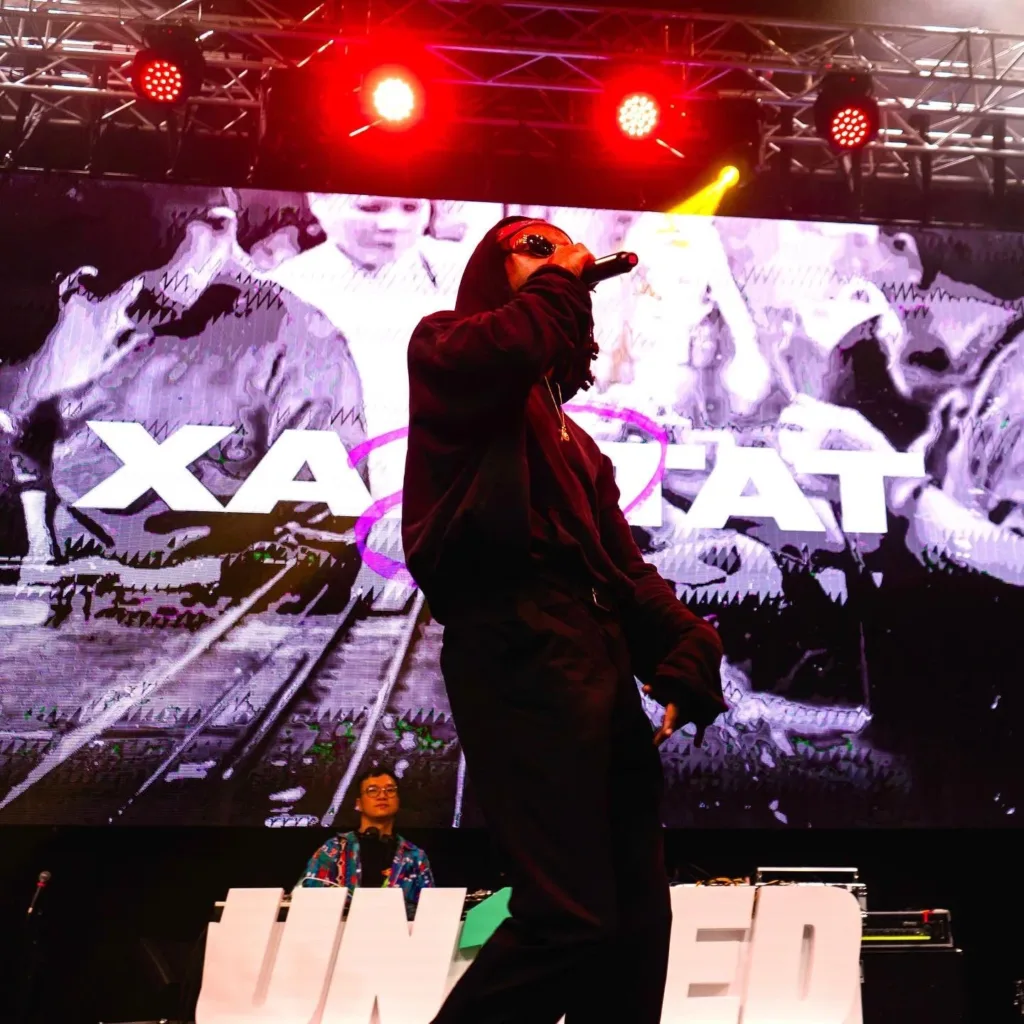
Introduction:
In the vibrant and diverse city of Hong Kong, a rap artist is making waves in the music scene with his unique blend of influences and unorthodox approach. Born in Harare, Zimbabwe to Nigerian parents, this artist spent his formative years traversing different African countries before settling in Russia and eventually finding his artistic home in Hong Kong. With a deep-rooted passion for hip-hop and a determination to uplift the genre globally, this artist’s journey is a testament to the power of following one’s artistic instincts.
The Early Years: A Fusion of Cultures and Influences
Growing up as the youngest child in his family, this rap artist was heavily influenced by his siblings’ eclectic music choices, which ranged from hip-hop and R&B to rock. This diverse musical upbringing is reflected in his wide range of instrumental choices, giving his music a unique and multifaceted sound. As a member of the renowned Russian hip-hop collective Architects Music Group (AMG), he honed his skills before embarking on a new chapter in Hong Kong.
Establishing a Legacy: XABITAT and MTM
In 2014, our artist made Hong Kong his home and wasted no time in leaving his mark on the local hip-hop scene. He co-founded XABITAT, a music collective that serves as a platform for emerging talent, and played a pivotal role in establishing MTM, one of Hong Kong’s popular hip-hop event platforms. With a mission to uplift the global imprint of hip-hop, he tirelessly worked to promote and showcase the genre within the international community residing in Hong Kong.
The Unconventional Path: A Journey of Artistic Discovery
Unafraid to challenge conventional norms, this rap artist has always been a deep thinker and has a penchant for approaching life from unorthodox angles. With a motto of “When everyone goes right, I go left,” he has overcome numerous challenges in his life and embraced his unique approach to creativity. He believes that true creatives should have a distinct perspective, either inherently born or nurtured through their experiences.
Crafting Artistry: Creating Music and Visuals
For this artist, art knows no boundaries. Most of his free time is devoted to creating music and visuals, as he immerses himself in the creative process. From making beats, writing lyrics, and recording vocals to directing and editing videos, he encompasses every aspect of his artistry. Sometimes inspired by visuals, other times by his lyrics, his creative process is a fusion of his imaginative vision and his ability to bring it to life through his music.
The Pursuit of Dreams: From Chemical Engineering to Film School
Driven by a desire to pursue his passion for music, this rap artist took a bold step in his academic journey. He obtained a full scholarship to study Chemical Engineering in Moscow, Russia, as a means to secure a visa out of Nigeria. However, his creative spirit could not be contained, and he chose to enroll in a film school in Hong Kong. This decision proved to be pivotal, propelling his creative abilities beyond his expectations and shaping his artistic trajectory.
The Influential Roots: A Love for Hip-Hop
The artist’s love for hip-hop traces back to his childhood, where his eldest brother’s passion for the genre sparked his own interest. From buying bootleg rap CDs to impressing his brother to creating low-quality rap recordings in high school, his passion for hip-hop was nurtured over time. A chance encounter with a fellow rap artist during his university days in Moscow solidified his dedication to music, motivating him to pursue his craft wholeheartedly.
From Local Recognition to Global Aspirations
With a successful single titled “
Exclusive interview Questions
Can you tell us about your musical journey and how your diverse background and experiences have influenced your style and approach to music?
Living life as a third culture kid has certainly influenced my music style subconsciously. Growing up listening to a wide range of music genres makes me approach my creative process with no limitations. My next album will showcase this in comparison to my previous album which was strictly Hip-hop. As a third culture kid from African parents, I’ve always been too foreign for the African music scene and struggled for acceptance in the international Hip-hop scene, a challenge most African Hip-hop artists face.
What inspired you to establish XABITAT and co-found MTM, and what challenges did you face in promoting hip-hop in Hong Kong?
Being part of a successful Hip-hop collective in Moscow and seeing the benefits of growing faster together, gaining more exposure through fans of each members artists, and a small Hip-hop scene in Hong Kong…bringing together friends who were serious about their music careers like me was inevitable. Working together played a major role in developing the Hip-hop scene in Hong Kong.
How do you balance your roles as a music artist, producer, director, and editor? How do these different aspects of your creativity complement and enhance each other?
With every single or project that I work on, I tend to be involved in the creative process in entirety. I’ve always been passionate about all aspects of music production and the visuals provide an extra opportunity to reinforce my emotions before bringing it to the listeners/viewers. I don’t separate these processes but rather look at each as a major part of the art I create.
Could you share some insights into your creative process? How do you go about crafting beats, writing lyrics, and visualizing the overall concept for your music videos?
I’ve collaborated with beatmakers in the past, but I’ve always engineered every song I’m involved in. For my next project, I produced the album in entirety by myself and of course, worked with samples and loops. Going to a film school taught me how to craft ideas for visuals. I don’t want to go in to too many details on that otherwise I’ll talk forever. However, when it comes to lyrics…I always write about true events and experiences I’ve gone through. Rappers like Tupac, Nas and J. Cole are geniuses in telling stories. I’ve always been inspired by great story tellers because very few rappers have the ability to do so effectively.
How has your educational background in Chemical Engineering and your time in film school impacted your artistic journey and shaped your perspective as an artist?
In some cases, I visualize ideas before writing lyrics. This route became common in my creative process after going to film school. With my lyrics, sometimes you’ll hear punchlines with scientific themes.
Can you talk about the significance of being an international hip-hop artist based in Hong Kong? How has the internet and digital platforms helped you connect with fans beyond the city’s boundaries?
It’s challenging making music in Asia because a lot of the major labels take interest in local artists alone. Most of the countries being non-English speaking affects the quality and choice of music most of the population consumes. Thanks to social media platforms like Instagram, Tiktok, Facebook as well as music streaming services like Spotify, Apple Music, Soundcloud and many more, the heights to which artists can grow independently is limitless. However, it’s important to take note that marketing your art online costs money. You’ll have to put your money where your mouth is.
Your upcoming Afrobeats album is highly anticipated. What can fans expect from this project, and how do you plan to bring a new flavor to the genre while staying true to your hip-hop foundation?
I’ve posted some snippets of it on my Instagram highlight reel. With Hip-hop being my foundation, expect some good lyricism coupled with great storytelling over some groovy instrumentals. It’s Afrobeat due to the tempo of the drums and my use of English mixed with pidgin English slang. But it’s very much Hip-hop at the same time. It’s a new flavor I’m bringing, I’ve listened to it over and over. It doesn’t sound like any Afrobeat project currently out.
Who are some of your biggest musical influences, both within the hip-hop genre and beyond? How have these artists shaped your own sound and lyrical approach?
My biggest musical influences are all Hip-hop artists; Tupac, Nas, 50 cent & J Cole…in that order. Tupac and J Cole are some of Hip-hop’s greatest storytellers. I remember being frustrated early in my music career being unable to tell stories and make my words hit deeply like theirs do. As I got older, I learned to realize that telling stories with the right voice tone and technique like letting the beat breathe comes with age and experience. I am inspired by good music from every genre from a production standpoint. But my love for Hip-hop overshadows them all.
Could you share any memorable experiences or collaborations that have had a profound impact on your artistic journey so far?
I haven’t had many music collaborations outside artists within my music collective, both when I was in Moscow and currently in Hong Kong. I prefer to collaborate with artists whom I have real relationships with outside music. I believe this way; the music brings out the best emotions in me.
As an artist who values quality lyrics, how do you navigate the balance between delivering catchy and commercially appealing music while maintaining depth and meaning in your songs?
That’s the challenge in making great music, finding the right balance. I rather make music that people of all ages and from different genres can relate to. I don’t want my music to lean too much in one direction. I enjoy listening to music, not just rap. Artists like Drake are commercially successful because they’re able to attain this. It isn’t easy, but its doable. Whenever I record a song, I let it sit for at least 6 months and come back to it. I question if it still appeals to me from a musical standpoint. Writing good lyrics is easy to me given my Hip-hop foundation
In your opinion, what are some of the unique challenges faced by international artists like yourself in a city like Hong Kong? How do you overcome these obstacles and continue to grow your fanbase?
English not being the first language… hence, basic taste in commercial music on behalf of most of the population. In a city where most people don’t’ speak English as their first language, they tend to enjoy basic pop music with very simple lyrics they can mime to. Justin Beiber’s teenage music is a perfect example of what the average Hong Konger would listen to. I think that says it all. To overcome these challenges, we must look outside Hong Kong. Thanks to the internet, we’re able to do that today.
How do you envision the future of hip-hop in Asia? Do you see the genre evolving and gaining even more recognition and acceptance in the region?
It already has evolved rapidly over the past 8 years I’ve lived here. But there is still a lot of room for growth. Hip-hop isn’t new to countries like Japan, Korea, & Thailand with some of the biggest music scenes in Asia. We had our first Rolling Loud in Asia which took place in Thailand two months ago. I believe the future is bright for Hip-hop in Asia.
Can you shed some light on the importance of hosting hip-hop events and creating platforms for emerging talent? How has this contributed to the growth and development of the hip-hop scene in Hong Kong?
It is extremely important. I simply wanted to make music and never thought I’d be an event planner. But with the absence of opportunities, I had to act. Since then, we’ve had artists like me do the same which led to the rapid growth of the scene. We bounce of each other and invite each other to events to sustain. We still need more artists to do the same. It’s not being done enough for a world city like Hong Kong.
What advice would you give to aspiring artists who are looking to carve their own path and establish themselves in the music industry, especially those who come from unconventional backgrounds?
I advise them to aspire to be the best and make great music. What’s the point of the hustle if your art is mediocre? Secondly, develop thick skin because the industry is full of ups and downs. There will be more disappointments than rewards. Understand that to make it in this industry you’ll have to keep going until your last breath. Being an artist is a lifestyle, but there will be light at the end of the tunnel for those who put in the work, I’m certain.
What are your long-term goals and aspirations as an artist? Where do you see yourself and your music in the coming years?
I see myself opening a music recording and video/photo studio. I see myself taking my media company to the next level and continuing to create opportunities for upcoming artists. I will host music festivals in Asia for lovers of Hip-hop and Afrobeat’s. I also see myself producing a few films, and maybe a podcast in my 40’s and 50’s if I’m blessed to be alive then.






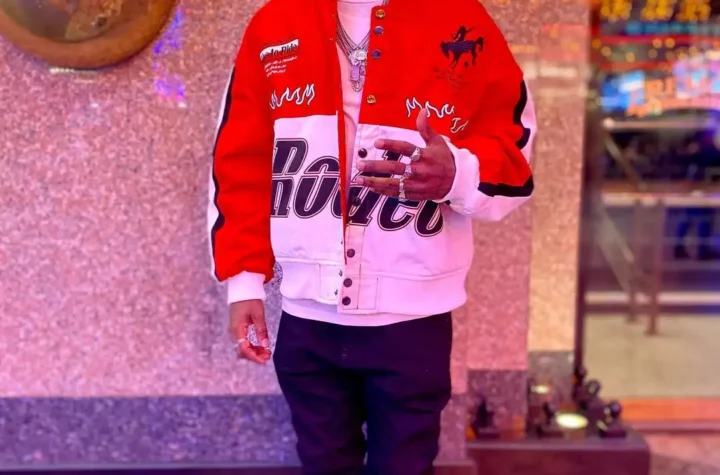
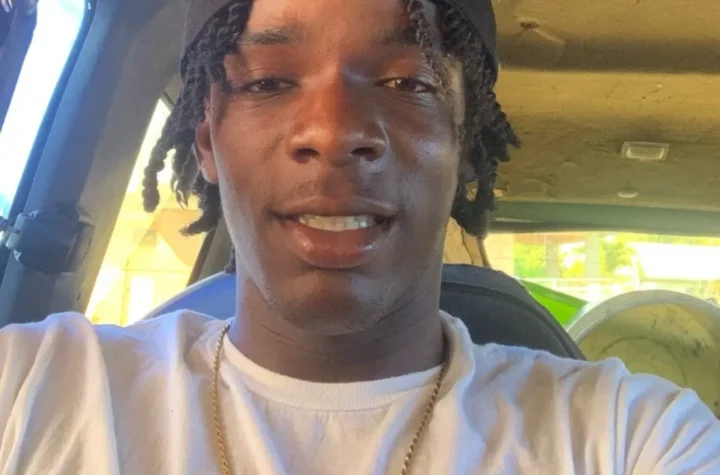
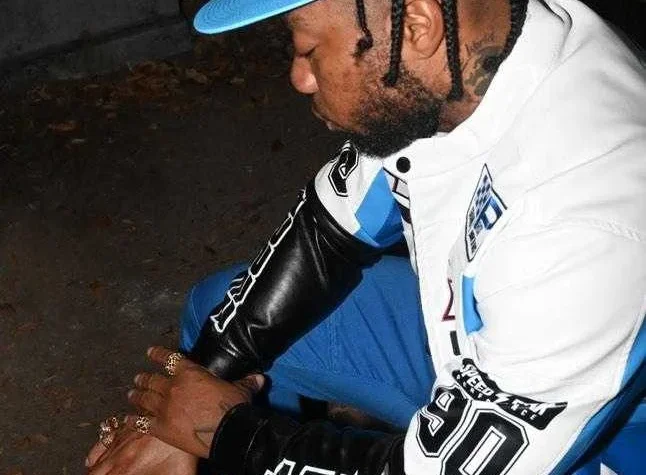
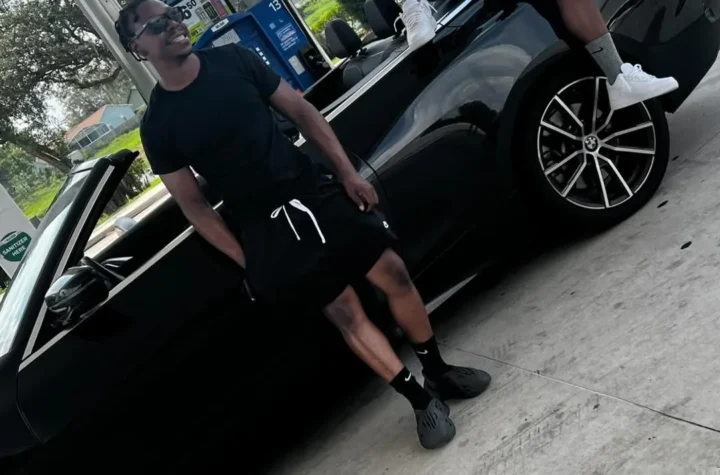
More Stories
Spazz Gee: The Visionary Hip-Hop ArtistRedefining the Sound of Las Vegas
Meechie Maxy: Bahamian Hip-Hop’s NewVoice of Truth Drops Powerful Single “First ofFive”
Floyd Ro Is Holding It Down: Florida Rapper’s New Hit Single Takes the Industry by Storm